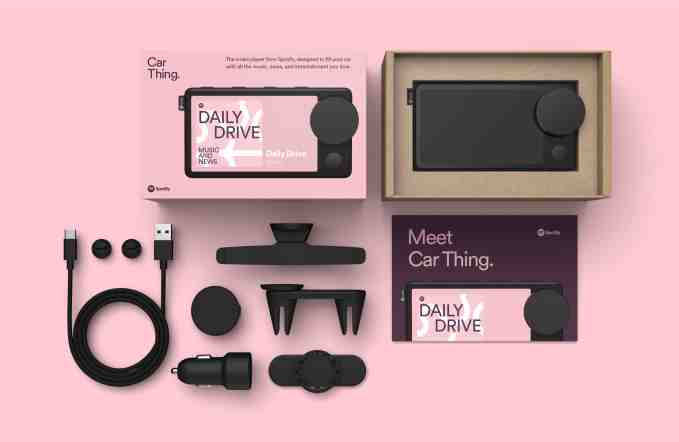
Logan Paul is offering refunds for CryptoZoo, the failed and allegedly fraudulent Pokémon-inspired NFT game that he launched in 2021. The catch? You can’t sue him if you get a refund.
In an X (formerly Twitter) post on Thursday, Paul announced that he is “personally committing” more than $2.3 million to buy back NFTs purchased through CryptoZoo. Claims can be submitted online until February 8.
“I never made a single penny from the project, period. In fact, the opposite is true, because I spent hundreds of thousands of dollars trying to make it happen,” Paul said in his post. “Like you, I was highly disappointed that the game was not delivered.”
Claimants will receive 0.1 ETH per eligible NFT — known as “Base Eggs” and “Base Animals.” Players were supposed to be able to “breed” the animals that “hatched” from the base NFT that they purchased, which would create “hybrid” animals that were also NFTs. Hybrid animals are not eligible for the buy-back program.
The form’s terms and conditions also note that any submitted NFTs that Paul “in his sole discretion deems ineligible” will not be returned. To be eligible for a refund, claimants also have to agree to waive any “actual or anticipated claims against Paul” — which means promising not to take legal action against him in relation to CryptoZoo.
The influencer, who faces a class action lawsuit for allegedly making millions of dollars of cryptocurrency by promoting a game that ultimately didn’t exist, also filed a cross-claim. In an X post, he said that he “filed a lawsuit in federal court in Texas to hold these bad actors accountable.”
“This lawsuit is the result of an exhaustive investigation that included the review of the entirety of conversations and tracking nefarious trading activity related to the project,” Paul continued in his X post. “Nefarious trading activity taken behind our backs, without our knowledge, and with the intention of defrauding us all.”
Rob Freund, a Los Angeles-based lawyer who represents brands and creators, told TechCrunch that the buy-back program could be Paul’s attempt at minimizing damages. Class action lawsuits can be “devastating” for defendants, as damages can include what the plaintiff and class members initially lost, in addition to punitive damages and attorney’s fees. Freund suggested that by refunding NFTs in exchange for waiving claims against him, Paul can individually settle with class members, effectively minimizing the potential damages.
“Paul may be betting (or at least hoping) that enough people who would otherwise be potential class members will take him up on this offer and drastically reduce his potential exposure in the pending case by doing so,” Freund said. “That would let him angle for a much more favorable settlement.”
Logan Paul is being sued in a class action about the CryptoZoo NFT disaster.
Today, he filed an Answer & Cross-Claim in that same case (which he's calling "a lawsuit in federal court in Texas to hold these bad actors accountable").
The Egg buyback may be a strategy to take some… https://t.co/uTQ15vFKW4
— Rob Freund (@RobertFreundLaw) January 4, 2024
Paul described the NFT project as a “really fun game that makes you money” when he announced it during an August 2021 episode of his podcast, “Impaulsive.” CryptoZoo was marketed as a collecting game using Ethereum — each NFT was an egg that was supposed to hatch into an animal that was assigned one of five levels of rarity. Those animals could be bred to produce hybrid animals, which also varied in rarity. Every time an egg hatched, it was supposed to yield a certain amount of $ZOO tokens, which were determined by the animal’s rarity. Players were supposed to be able to either buy more eggs or cash out each time an animal hatched.
Paul also promised that CryptoZoo would include interactive minigames and that the project would eventually “enter the metaverse.”
A three-part investigation by independent YouTube reporter Coffeezilla documented how the project unraveled; the game was never finished because developers quit due to nonpayment, Paul and his associates allegedly planned to engage in market manipulation and players couldn’t breed their hatched eggs or cash out.
My 3-step plan for CryptoZoo, including a $1.3M rewards program for disappointed players.
Thank you, @coffeebreak_YT pic.twitter.com/xFX017UHoc
— Logan Paul (@LoganPaul) January 13, 2023
Coffeezilla reported that two anonymous accounts received payouts from the project — one received $364,000 (92.7697 ETH) and the other received $1 million (260.000 ETH). At the time of Coffeezilla’s reporting, CryptoZoo held approximately $79,875,629, or 1,214,225,001.8 $ZOO for “wildlife charities and CryptoZoo development.
In now-deleted response videos, Paul accused another CryptoZoo developer of scamming him and the rest of the team, but later told fans on Discord that he would be “taking accountability.” He then outlined a plan to pay back investors and finish the game.
The class action lawsuit filed last year in the Western District of Texas alleges that Paul and other CryptoZoo associates promoted the project to “consumers unfamiliar with digital currency products,” and that they “manipulated the digital currency market for Zoo Tokens to their advantage.”
In an answer and cross claim filed on Thursday, Paul alleged that Jake Greenbaum and Eduardo Ibanez, who worked on CryptoZoo and were also named in the class action lawsuit, were “con artists” who “sabotaged” the project. Paul also claimed while he lost “hundreds of thousands of dollars due to the duplicity and deceit of those he trusted,” Greenbaum and Ibanez pocketed “millions.”
CryptoZoo, however, is dead. Paul posted that after “personally” spending $400,000 to complete it early last year, releasing it was unfeasible. He also reminded followers that the Zoo Token was created to support the game, and was never intended as an “investment vehicle,” so the buy-back is not intended to “compensate those who gambled on the crypto market and lost.”
“Unfortunately, there are too many regulatory hurdles that would need to be cleared that I did not originally understand and would ultimately delay this buy-back even further,” he said. “This buy-back is a way for me to make whole those who intended to play CryptoZoo.”
YouTuber Logan Paul’s CryptoZoo NFT project is a total mess

